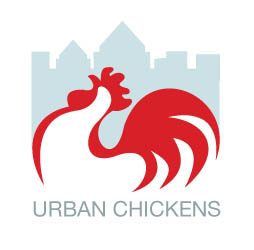 One of the FALPC’s priorities is to expand and improve urban agriculture in Worcester. This includes advocating for urban livestock such as the right to raise chickens. Why would we want to change zoning and ordinances to permit residents to raise chickens within city limits? Well, I’m so glad you asked. Here are six reasons why:
One of the FALPC’s priorities is to expand and improve urban agriculture in Worcester. This includes advocating for urban livestock such as the right to raise chickens. Why would we want to change zoning and ordinances to permit residents to raise chickens within city limits? Well, I’m so glad you asked. Here are six reasons why:
1) Fresher, safer, and more nutritious eggs. The 2010 salmonella outbreak demonstrated the hazards of an industrial food system and the need for tangible alternatives. Backyard chickens would provide urban residents with a way to obtain local eggs from chickens with better, more natural diets meaning greater nutrient content. Additionally, raising backyard chickens involves no greater health concerns than owning a cat or dog.
2) Reduction in municipal waste. Chickens recycle table scraps, yard waste, and pesky insects into organic fertilizer that improves soil health instead of contributing to landfills and bug bites. If just 2,000 homes raised 3 hens, 252 tons of waste could be rid from landfills annually. It is an additional bonus that chickens eat pests, ticks, and weeds.
3) Fewer carbon emissions. If households raise their own livestock, it reduces the amount of fuel and energy used to transport eggs to grocery stores. It also contributes to local foods, local economies, and small farms that struggle to compete with the industrial and corporate food system.
4) More humane and ethical food source. 95 percent of egg-laying hens live in wire battery cages smaller than an 8 x 11 piece of paper. They are unable to perform any natural behaviors and often have their beaks snapped off. Because they don’t lay eggs, male chicks are disposed of by grinding them alive or suffocating them in trash cans. Raising backyard chickens is a way to combat the atrocities and abuses of factory farming.
5) Educational opportunity. Raising chickens is a great way to teach children about where eggs and meat come from and animal care. It is also a way to preserve rare heritage birds from being bred to extinction due to highly specific selections by factory farms. Heritage birds are also more resistant to disease because of their genetic diversity.
6) Environmental sustainability and food justice begins with local initiatives. Individual and household changes in eating patterns can make a significant impact. Numerous cities such as Providence, Los Angeles, and Chicago support urban chicken farming. Let’s make Worcester next!
“The local food movement is about de-intensifying food production, regaining confidence-building skills and know-how, and about showing people where their food comes from in order to develop an appreciation of the real cost of food: there’s nothing like the pride of eating what you grow.” Joseph Sneep




